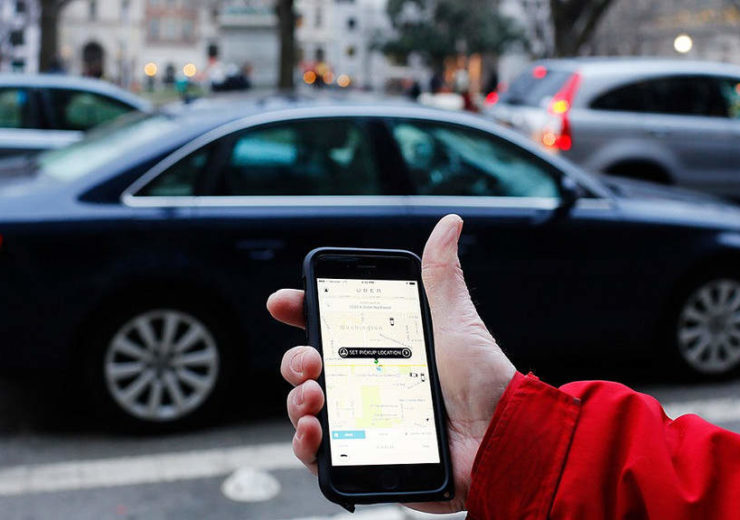A ruling by a New York appeals board has declared that some Uber drivers should have access to unemployment benefits - a landmark ruling that could change Uber driver employment rights

Assembly Bill 5 would provide Uber drivers with the additional workers rights (Credit: Flickr/Mark Warner)
Uber driver employment rights could be transformed after a “ground-breaking” ruling about their worker status in New York.
A state appeals board ruled some Uber drivers are employees and should have access to unemployment benefits when they leave the ride-hailing app service.
It is another legal challenge to the so-called “gig economy” model – which treats workers as self-employed contractors.
Upholding a ruling from 2016, the New York State Unemployment Insurance Appeal Board said three Uber drivers who left the company were entitled to unemployment benefits.
New York Taxi Workers Alliance (NYTWA) executive director Bhairavi Desai said: “This decision gives drivers a safety net, and one that Uber has to pay for, challenging Uber’s business model of low pay and lower retention.
“Uber treats drivers as if they are expendable, and up until now, it’s never had to come at a risk or cost to the company.”
Jeffrey Shepherd, an NYTWA member and one of the Uber drivers involved in the case, added: “I’m just happy that no one else will have to go through the struggle that I went through.
“When I started driving for Uber, I thought I would be able to make a living wage.
“Instead, I was stuck in a predatory car leasing agreement with insurmountable debt, working just to make car payments with nothing left over for food or rent no matter how many hours I worked.
“Now, if other Uber drivers find themselves in a similar situation, not making enough to get by, they can get unemployment insurance instead of having to fight like I did.”
‘Ground-breaking’ ruling for Uber driver employment rights
The New York appeal board found that Uber exerted an employer’s control over drivers by handing work down through its app, setting both fare and pay rates, deactivating drivers below a 4.5 star rating and monitoring their performance.
Uber, which employs more than 65,000 people in New York, will have the option of appealing the appeal board decision – taking the case to the New York supreme court.
Sarah Dranoff, director of Brooklyn Legal Services workers’ rights and benefits unit, said: “This is a groundbreaking ruling. We now have an official position expressed by the state of New York that these drivers were employees of Uber – a position that the state will have to defend if Uber appeals.
“The case sets a significant legal precedent because it applies not just to the three Uber drivers in question but to others similarly situated.”
In a statement on the ruling given to Politico, an Uber spokeswoman said: “We disagree with this ruling and we are reviewing our options.
“We are confident that the ruling uniquely applies to the three claimants because many of the practices cited in the opinion never applied to one or more of the claimants, are no longer in place, or never existed at all.”
Compelo has contacted Uber for a response to statements included in the NYTWA release, and is awaiting a response.
Uber driver employment rights elsewhere in the world

New York is not the only US state to put a legal challenge to the gig economy structure used by ride-hailing apps like Uber and Lyft.
In a judgement similar to that of the New York appeals board, a Pennsylvania court declared in January that an Uber driver was eligible for unemployment benefits.
Across the Atlantic, Uber will appear at a UK Court of Appeal hearing later in 2018 after the firm lost an appeal last year against a ruling that said Uber drivers should be considered workers and have access to employment rights.
The California Supreme court ruled in favour of drivers working as contractors for Dynamex Operations West, a document delivery service, that were pushing for treatment as employees in May this year.
UK government advisers in the Office for Tax Simplification today recommended that services like Uber and Deliveroo should be responsible for sorting out the taxes of workers.
Across the world, there appears to be a change in attitude to how Uber driver employment rights – and those of other self-employed contractors – should be treated.
Picture: Flickr/Mark Warner


